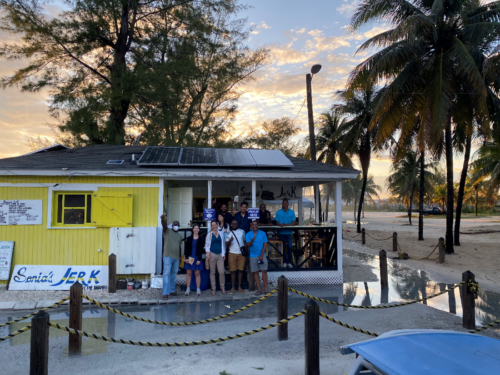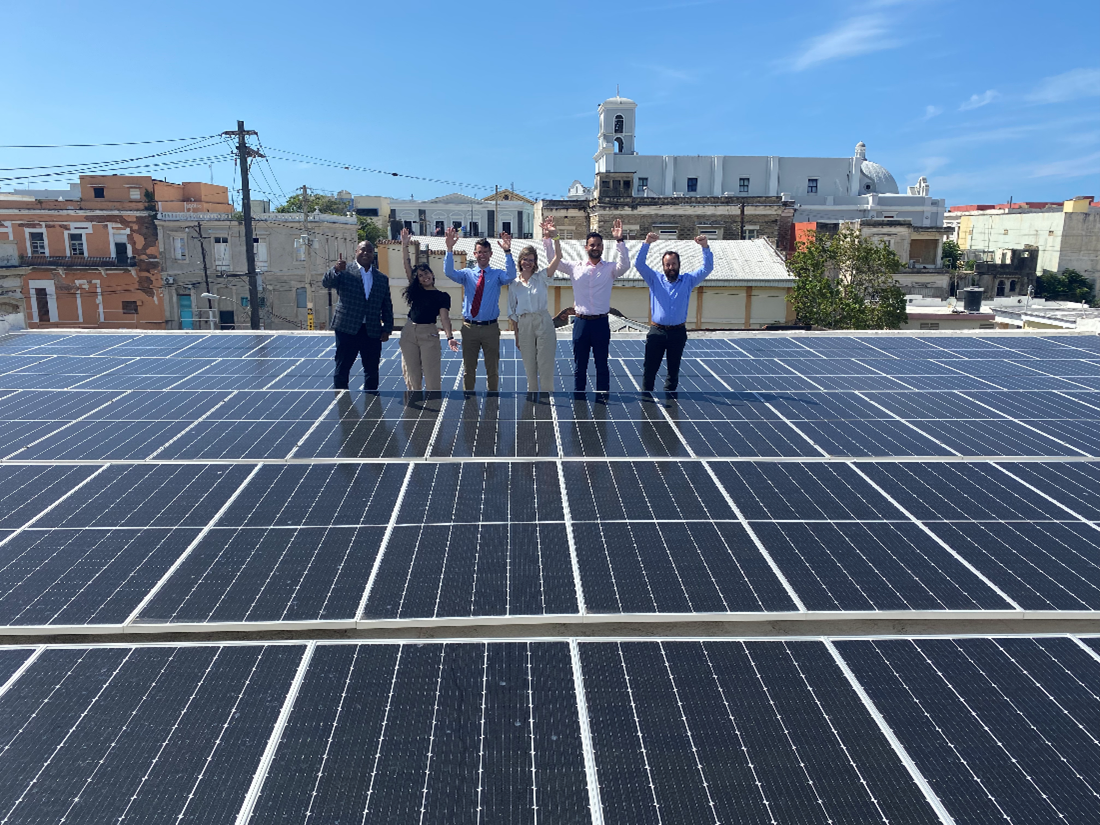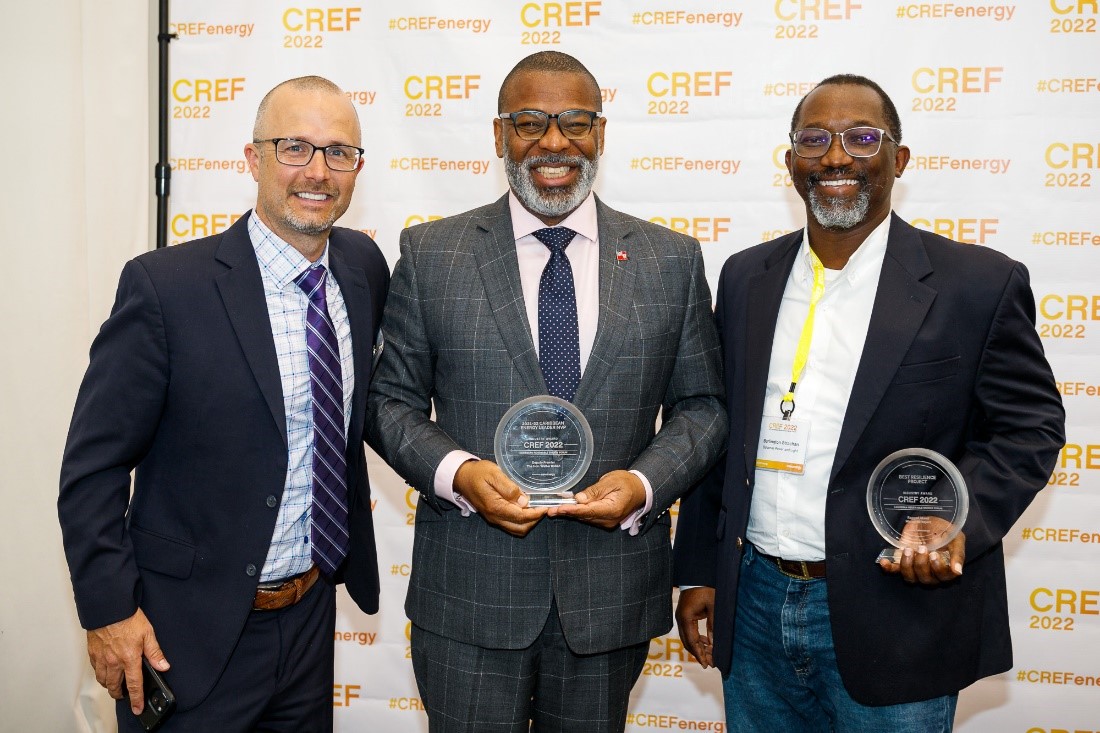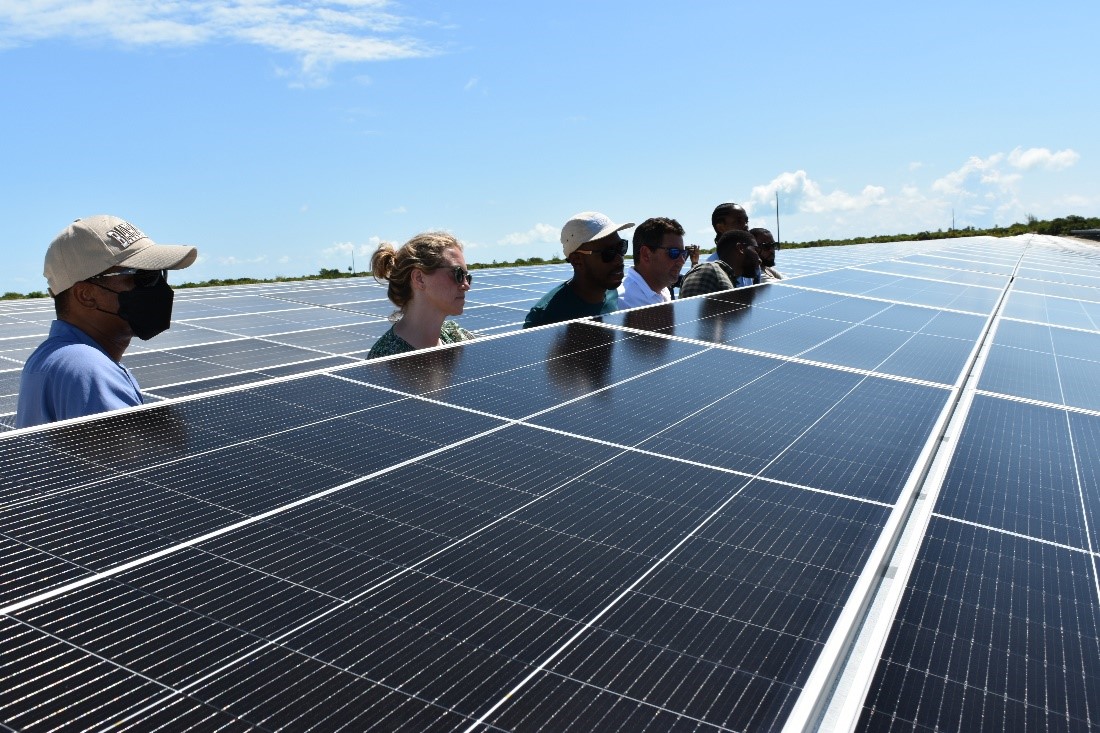
Catalyzing the Caribbean’s Clean Energy Transition through Strong Partnerships
What do a Caribbean, an American, and an African energy leader have in common? At first look, not much.
We face starkly different challenges in supporting these regions’ transition to a net-zero, resilient future. This is underscored by RMI’s analysis of the IPCC report, showcasing the drastically different access to finance and energy technology between the Global North and the Global South. We are vulnerable to climate change in several distinct ways.
But if you look at the three of us — David Gumbs from Anguilla, Chris Burgess from the US east coast, and Raul Alfaro-Pelico from Equatorial Guinea — we all share a passion for a just, human-centric, and equitable decarbonization. It draws from RMI’s over ten years of experience taking a front row seat supporting the Caribbean’s transition to a cleaner, resilient future.
We also share an understanding that the key to a successful energy transition in the Caribbean is strong partnerships.

RMI’s Puerto Rico team and local partner, FCPR, celebrating the completion of the first of many solar and storage microgrid installations that will provide resilient power for critical facilities in low- to middle- income communities during and after hurricanes.
Building Resilience for Hurricane Season and Year-Round
June 1st marked the beginning of Atlantic hurricane season in the Caribbean, which peaks between August and September. This increasingly stark annual reminder of the climate emergency is why RMI focuses on the region: resilience is critical. Not only is the Caribbean home to some of the most climate-vulnerable communities, but it also has some of the highest energy prices in the world. In addition, the region urgently needs to scale resilient energy systems in the face of these life-threatening and productivity-halting circumstances.
Fortunately, every Caribbean island has access to the sun — a resource that can create solutions. From solar microgrids and electric mobility, to battery storage, RMI’s partners on the ground are paving the way toward local economic resilience leading to a cleaner, more affordable, and equitable future for all.
Earlier this year, RMI attended and participated in two conferences that convene organizations, experts, and decision makers working on climate and clean energy in the Caribbean — the Caribbean Renewable Energy Forum (CREF) Forum and the Caribbean Electric Utility Services Corporation (CARILEC) Conference. At both events, our partners took center stage — sharing compelling, critical learnings from their experiences in the energy space and, at CREF, receiving awards for their initiatives to strengthen resiliency in the region.
CREF Award Partner Highlights
The awards our partners received at CREF include:
- 2021-22 Caribbean Energy Leader MVP: Minister of Home Affairs, the Hon. Walter Roban, Government of Bermuda
- Best Distributed Generation Project: 1 MW Solar and Storage Project, Montserrat Utilities Limited and Government of Montserrat
- Best Utility-Scale Project: Bermuda Airport Solar Project by the Government of Bermuda & Saturn Power Inc.
- Best Resilience Project: Ragged Island Microgrid Project by Bahamas Power & Light

From left to right: RMI Islands Director of Projects Chris Burgess; Bermuda Minister of Home Affairs Hon. Walter Roban receiving Caribbean Energy Leader MVP, and Burlington Strachan, Chief Operating Officer, Bahamas Power and Light, receiving Best Resilience Project
Elevating Resilient Leaders
RMI’s efforts in the Caribbean began in 2012 with the creation of the Islands Program. Founded on a strong partnership with Aruba, the Islands program started small. In 2014, during his first and only previous participation at CREF, Raul witnessed the beginning of one of the first interventions in the region. The United Nations was developing the Ten Island Challenge with the Carbon War Room, at the time it was merging with RMI. Fast forward to 2022, and the program has grown exponentially, expanding to support over 18 Caribbean Island nations in their transition away from centralized, unreliable, and expensive fuel-based energy systems to decentralized, resilient, and cost-effective renewable energy systems for all. In the past ten years, RMI efforts supporting clean energy in the Caribbean have saved $9 billion in fuel costs, avoided 63 metric tons of CO2 emissions, and created thousands of local jobs.
And this is just the beginning. To continue implementing energy solutions to build real resilience, we are elevating, connecting, and building energy leaders and practitioners in the Caribbean through our Energy Transition Academy (ETA). This is our not-so-secret sauce to scaling the clean energy transition. It is not only necessary, but urgent to build resilience and protect community livelihoods.
The ETA is developing human and institutional capacity by building on and fostering new partnerships in the Caribbean. We know we do not have enough people to do the work to meet the climate and just transition goals within the next decade, so we must scale solutions addressing this immediately. This is impossible unless communities mobilize to tackle the challenge through an upskilled, connected workforce at the helm.
The ETA Global Fellowship Program, for example, is a professional development opportunity that offers utility practitioners peer connections and technical assistance on topics such as project development and management, de-risking and procurement, and regional topics like battery storage. With some exciting new developments soon to be announced, ETA will also accelerate equity integration into its work to support more (gender) diverse participation of players in the Caribbean clean energy space.

From left to right: RMI Global South Project Manager Fidel Neverson with RMI Islands Team and ETA Fellows at the Chub Cay solar microgrid in The Bahamas, during the Inaugural Caribbean Fellows’ Summit
“People are our greatest asset. As a utility with a focus on energy resilience and integrating renewable energy as a key electricity source, it is fundamental that we invest in our people with training opportunities to learn the skills that are needed now and as we look to the future,” said Burlington Strachan, chief operating officer for Bahamas Power and Light. “Partnering with RMI on the Global Fellowship Program has provided a great opportunity for Bahamas Power and Light to invest in our greatest asset and advance our clean energy pathway.”
Advancing Leadership through Collaboration
In addition to winning awards at CREF, RMI and our partners attended the CARILEC CEO & Leadership Conference, which focused on the importance of leadership as vital to the growth and development of the Caribbean’s energy sector with the ongoing transition to renewable and sustainable energy. The ETA connected with CARILEC, the Caribbean Center for Renewable Energy and Energy Efficiency (CCREE), Bahamas Power and Light, British Virgin Islands Electricity Corporation, Virgin Islands Water and Power Authority, and other partners to discuss the Global Fellowship Program and Leadership Accelerator offerings, following a session on advancing leadership through collaborative capacity development.
Cherri-Ann Farquharson, CCREEE’s knowledge management and capacity development expert, said, “Collaboration among organizations and institutions is key to advancing the energy transition within the Caribbean. At CCREEE we are committed to developing partnerships to build regional capacity. Together we can advance the region’s resilience to climate change in ways that none of our organizations could do individually.”
This Caribbean islander, American, and African are excited to have such extraordinary partners helping us scale our work in the Caribbean.
In the next few months, we will be spotlighting our partners, building on our #ResilientLeaders video stories to showcase and elevate the tremendous efforts of local leaders and communities.